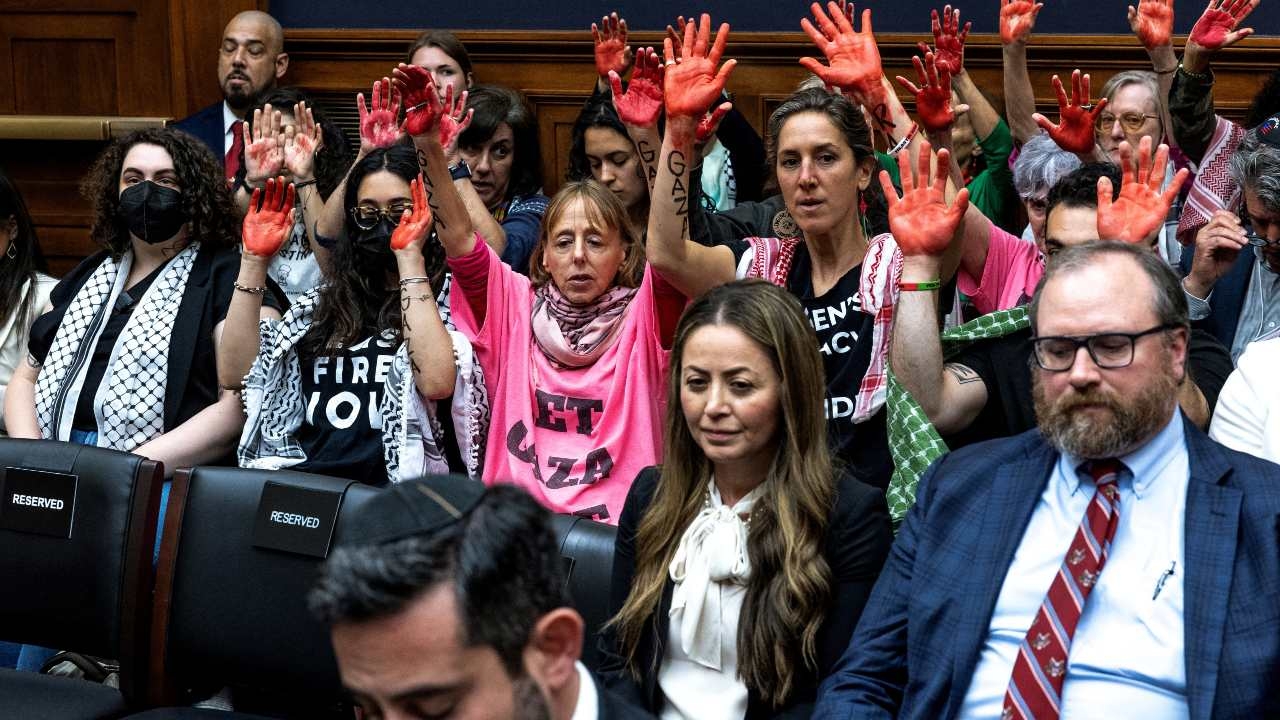Harvard University failed to investigate on-campus antisemitism, report finds

The Republican-led House Committee on Education and the Workforce released a report on Thursday saying that Harvard University snubbed recommendations from an antisemitism advisory group.
Following Hamas’s 7 October attack on Israel, Harvard University set up an eight-member antisemitism advisory group (AAG), amidst "considerable scrutiny of the University’s response to increased antisemitism on its campus", the report reads.
"Harvard leaders ignored & never implemented recommendations from its Antisemitism Advisory Group (AAG) to address rampant antisemitism on its campus", a post on the social media platform X states, announcing the publishing of the report.
In December 2023, the AAG, composed of Harvard faculty, alumni and a student representative, presented Harvard University with evidence suggesting antisemitic harassment to be a "significant problem" at the school.
The AAG based its findings on students' accounts and a list of incidents of harassment filed by students and parents, including reports of a student being spat on, a student being chased by a faculty member and a general failure to create a "non-hostile educational environment", the report reads.
New MEE newsletter: Jerusalem Dispatch
Sign up to get the latest insights and analysis on Israel-Palestine, alongside Turkey Unpacked and other MEE newsletters
The publishing of the report comes a day after the House Judiciary Subcommittee on the Constitution and Limited Government held a hearing addressing allegations of antisemitism at US college campuses.
One of the students who testified at yesterday's hearing is a graduate student at Harvard University.
The AAG also submitted significant recommendations on goals and steps to address antisemitism at the university, including the "zero tolerance" of classroom disruptions, protecting shared learning environments, holding student organisations accountable for adhering to university rules, and countering antisemitic speech.
The group also gave recommendations on reviewing Harvard’s Office for Equity, Diversity, Inclusion, and Belonging’s (OEDIB) "inadequacy in addressing antisemitism" and investigating the potential influence of "dark money from Iran, Qatar".
The report detailed what it described as the lack of active engagement from Harvard leadership after incidents of antisemitism were brought to their attention. The recommendations were given but were reportedly not implemented despite Harvard’s then-provost and current interim president Alan Garber having "attended and led each AAG meeting", the report continued.
The report also remarks that a majority of the AAG members threatened to resign over concerns about the inadequacy of Harvard’s response to antisemitism and a lack of clarity on the AAG’s charge and future work.
"The Committee’s report proves that former President Gay and Harvard’s leadership propped up the university’s Antisemitism Advisory Group all for show,” Virginia Foxx, chairwoman of the Committee on Education and the Workforce, said in a statement.
Discrimination complaints from both sides
Since the war on Gaza, universities have become a flashpoint in discussions on both rising antisemitism and anti-Muslim discrimination. University administrations across the US have faced criticism for failing to keep Jewish, Muslim and students of Arab origin safe on campus.
Earlier this month, Columbia University and Emory College were the first universities to face a federal investigation for anti-Muslim discrimination on campus, Middle East Eye reported.
Within the wake of the 7 October attack and the unfolding of Israel's bombing campaign on Gaza, student-led solidarity movements and protests on US campuses have surged. Within the last weeks, at least 90 Gaza solidarity encampments have been set up at US universities demanding university administrations to disclose finances and divest from companies supporting Israel's war on Gaza.
The Columbia University protest camp, regarded as the forerunner of the Gaza solidarity encampments, was violently taken down and students were arrested and suspended.
The protest camp at Harvard University peacefully ended yesterday, after the administration agreed to meet students and hear their demands surrounding divestment from Israel. The university will also reportedly begin reconsidering involuntary leaves it imposed on some.
Middle East Eye delivers independent and unrivalled coverage and analysis of the Middle East, North Africa and beyond. To learn more about republishing this content and the associated fees, please fill out this form. More about MEE can be found here.

